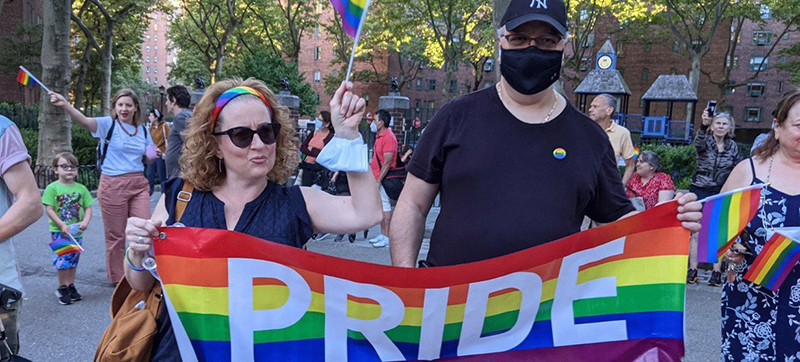 LGBT
LGBT New York: The right to keep personal health data private is increasingly under threat in our digital world, with potentially devastating consequences for already vulnerable people, a UN-appointed independent rights expert told the Human Rights Council on Thursday.
The Special Rapporteur on the right to health, Tlaleng Mofokeng, warned that technology enabled easy sharing of sensitive health data of adolescents, migrants and people whose sexual orientation or health status was subject to discrimination.
“Accessibility of information through digital tools should not impair the right to have personal health data treated with confidentiality,” Ms. Mofokeng insisted.
Technology used to prosecute abortion seekers
Ms. Mofokeng highlighted the dangerous use by State and non-State actors of mobile communication, geo-mapping and search history data against people seeking contraception or abortions in jurisdictions - such as some states in the US - which criminalize these health services, resulting in prosecution, arrest and further stigma.
The Special Rapporteur also pointed out that while technology can enable broader access to healthcare through solutions such as telemedicine, the global digital divide results in major inequalities in this area between countries, genders and social and age groups.
Special Rapporteurs and other independent experts appointed by the Human Rights Council serve in their individual capacity; they are not UN staff and do not receive payment for their work.
Poverty an obstacle to women’s rights
In a related discussion at the Human Rights Council (HRC) in Geneva, the disastrous effects of poverty and socio-economic inequality on female health were among the glaring injustices highlighted by the Working Group on discrimination against women and girls. The Group’s Chair, Dorothy Estrada-Tanck, presented a report to the Council showing that globally, women and girls are disproportionately represented among those living in poverty.
She stressed that they often face stigma and criminalization when seeking reproductive healthcare and services, including abortion.
“When women and girls cannot access sexual and reproductive health education, information, goods and services, family planning services, gender-based inequalities and poverty are further entrenched and may be transmitted to future generations,” Ms. Estrada-Tanck warned.
LGBT exclusion in the name of religion
Discrimination against lesbian, gay, bisexual, trans and gender-diverse (LGBT) persons featured on agenda at the Council, which heard on Wednesday that LGBT rights were not incompatible with freedom of religion – as some Member States insisted.
Presenting his latest report to the Council, Victor Madrigal-Borloz, the Independent Expert on protection against violence and discrimination based on sexual orientation and gender identity, said that LGBT persons are often marginalized, stigmatized and excluded from religious communities “simply because of who they are”.
He warned against the use of religious narratives to justify denying LGBT persons their human rights and said that embracing spirituality and faith is a path that must be available to all, including those with diverse sexual orientations and gender identities.
The world’s most pressing rights issues
Throughout its 53rd session, the Council will continue to address the world’s most pressing human rights emergencies. Since the session’s kick-off on Monday, Member States have discussed the situation in Afghanistan, Eritrea, Iran, Israel and the Occupied Palestinian Territory, Myanmar, Nicaragua, Sri Lanka and Sudan.
Looking ahead, highlights will include a review of the impact of climate change on human rights, as well as a focus on Belarus, Burundi, Central African Republic, Syria, Ukraine and Venezuela.
Before closing its session on 14 July, the Council will also take action on a number of resolutions resulting from these discussions, put forward by its 47 Member States.
Support Our Journalism
We cannot do without you.. your contribution supports unbiased journalism
IBNS is not driven by any ism- not wokeism, not racism, not skewed secularism, not hyper right-wing or left liberal ideals, nor by any hardline religious beliefs or hyper nationalism. We want to serve you good old objective news, as they are. We do not judge or preach. We let people decide for themselves. We only try to present factual and well-sourced news.







